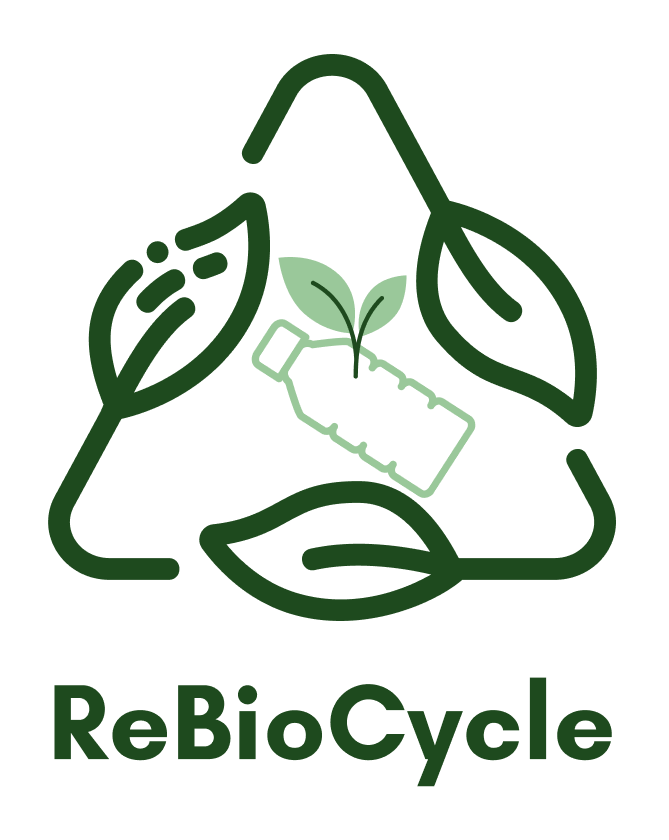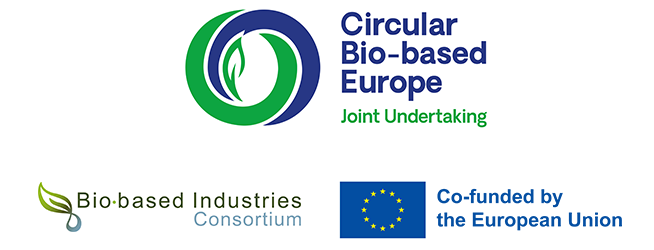
ReBioCycle is an Innovation Action funded by the Circular Bio-based Joint Undertaking (JU): the project kick off took place in October in Dublin, hosted by the coordinator, Kevin O’Connor, who is professor at the University College Dublin and Director of BiOrbic.
The challenges that ReBioCycle will address in the next four years of work are several: The integration of biobased biodegradable plastics into the circular economy requires the establishment of collection and sorting strategies for bio-based biodegradable plastics that are compatible with current waste management practices and their subsequent recycling through novel technologies. The recycling of biobased plastics into recycled high-performing materials is a key challenge. Biobased plastic waste does not yet constitute a relevant amount of the total plastic waste (being only 1% in weight1). Still due to their high weight in the political agenda it is easy to foresee that biobased plastics will gain a relevant market share in the near future. A first challenge is the lack of data on the sorting and recycling of these biobased biodegradable polymers at demonstration scale. To support their entry into the market we need to consider the end-of-life of these plastics. ReBioCycle will test and scale existing and new technologies for mechanical, chemical and biological recycling of biobased biodegradable plastics.
A second challenge is represented by the scale: Data for the recycling of biobased biodegradable plastics exists at lab scale, but not at higher TRL levels. ReBioCycle will scale to pilot and demonstration scale to advance the technology readiness level of these technologies to accelerate their implementation in the marketplace.
A third challenge lies in establishing an efficient collection and sorting process. Plastic recycling is overall a challenge in Europe, with less than 14% of plastic consumption recycled domestically. Biobased and biobased biodegradable plastics are part of this picture, although still relatively a small fraction (but with forecast of high growth. Labelling is not yet there to distinguish fossil-based from biobased plastics, and the streams are collected together. While certification schemes indicate that some plastics are compostable in industrial composting plants or in home-composting reactors2 they do not indicate if these plastics are also recyclable.
The ReBioCycle approach to address these challenges is based on the following pillars:
- Develop sorting and separation systems for isolating dedicated biobased plastics from the mixed biobased and fossil-based plastics streams.
- Develop, upscale and deploy innovative recycling technologies and adapt, optimise and deploy existing ones for biobased plastics. The focus is on mechanical, chemical, microbial and enzymatic technologies.
- Demonstrate integration of the recycling process(es) at relevant scale inside a real waste management plant.
- Target as much as possible the same grade for the recycled as the virgin product (e.g. keeping food grade) and upgrade the resulting stream into higher-value products.
- Assess the market uptake potential of recycled biobased plastic products.
- Assess the integration of the developed sorting and recycling technologies with current waste management practices. Involve waste management companies.
- Perform an assessment based on the safe-and-sustainable-by-design (SSbD) framework, developed by the European Commission, for assessing the safety and sustainability of chemicals and materials.3
- Develop recommendations that can advance further the application of the SSbD framework.
More concretely, ReBioCycle proves a portfolio of bioplastic sorting and recycling technologies within three complementary waste-processor-centric hubs at a demonstration scale and in the real operational environment the effective and efficient recycling of three types of bioplastics (e.g., PLA, PHA, and composites) to demonstrate a higher impact of obtaining the same or superior grade recycled polymers and other higher value applications.
The Dutch Hub will focus on chemical technology, upscaling it to TRL 6 and will be using TORWASH technology to recycle PLA and PHA polymers (500 kg each). TORWASH is leading the Dutch Hub. Other partners are the Dutch waste sorting, NTCP, TotalEnergies Corbion, Paques Biomaterials, and Corbion will be involved. Kaneka Belgium is also supporting this hub.
The Italian Hub will focus on chemical technology, upscaling it to TRL 7. NOVAMONT is leading the Italian Hub. NOVAMONT technology will be used to recycle 600 kg of mixed composites. Also rPHA from the Dutch and Spanish Hub will be tested in the Italian hub to blend into bioplastic formulations. The IREN Group waste sorting site of Borgaro Torinese (Piedmont, Italy) and NOVAMONT’s new dedicated bioplastics recycling section within its Terni (IT) plant will be involved, together with AMIAT and I.BLU.
The Spanish Hub (ES HUB) will focus on enzymatic recycling technology brought to TRL 6. AIMPLAS is leading the Spanish Hub. Microbial recycling technology will be brought to TRL 7 with expected resulting outcomes of up to 100kg rPHA. The mechanical recycling technology upscaling to TRL 7 will achieve 250 kg bioplastic recycled (Trinity College Dublin, AIMPLAS, GlasPort Bio, University of Galway O’ Flaherty Lab, CSIC CIB, Biological Research Center). The hub activities will be implemented in the waste sorting site of Manises (Valencia, Spain) run by the S.A. Agricultores de la Vega de Valencia. Kaneka Belgium is also supporting this hub.
ReBioCycle will verify the industrial grade specifications by biopolymer brand owners and via demonstration of real-world products for durable (ARAPAHA: PLA) and multi-use packaging (SULAPAC: PHA and composites). The LCA analysis by ARCHA and tailored dissemination and exploitation plans by European Bioplastics and MAGFI will facilitate key exploitable results’ uptake.
Follow ReBioCycle on LinkedIn: https://www.linkedin.com/company/rebiocycle
ReBioCycle on Zenodo: https://zenodo.org/communities/rebiocycle
| 1.Reshaping Plastics’ (https://plasticseurope.org/reshaping-plastics), Systemiq (2022), based on best available academic and industry data. |
| 2.E.g., Ok compost INDUSTRIAL and Ok compost HOME (TÜV, https://www.tuv-at.be/green-marks/certifications/ok-compost-seedling) |
| 3.https://ec.europa.eu/info/research-and-innovation/research-area/industrial-research-and-innovation/key-enabling-technologies/advanced-materials-and-chemicals_en. |
ReBioCycle has received funding from the Circular Bio-based Joint Undertaking (JU) and its members under the European Union’s Horizon Europe research and innovation programme under Grant Agreement No. 101156032. The JU receives support from the European Union’s Horizon Europe research and innovation programme and the Bio-based Industries Consortium.
